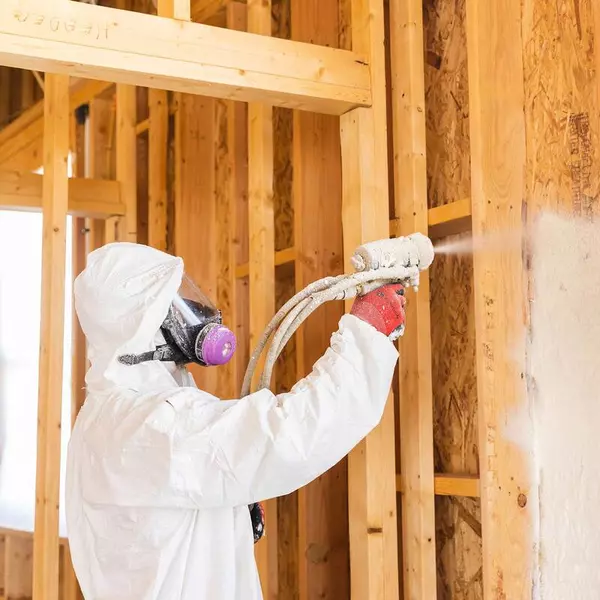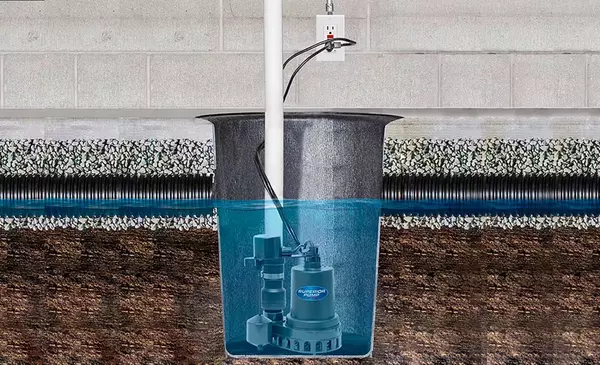
Navigating the Pros and Cons of Spray Foam Insulation
Spray foam insulation is a game-changer for energy efficiency, ensuring year-round comfort in homes. This blog explores the benefits and drawbacks of this insulation method, offering insights from the expert perspectives at Lemon Lane Living. Advantages of Spray Foam Insulation: Spray foam insulati

Navigating Change: Understanding the Impact of Climate Change on Charleston County
Charleston County, a coastal gem steeped in history and natural beauty, faces the undeniable reality of climate change. As the global climate shifts, so too does the landscape of this Lowcountry region. In this blog post, we delve into the multifaceted impact of climate change on Charleston

Unlocking Assurance: Understanding Title Insurance in South Carolina Home Purchases
Embarking on the journey of homeownership is an exciting venture, yet it comes with a myriad of considerations and safeguards to ensure a smooth transition. One such crucial element often discussed in real estate transactions is title insurance. In this blog post, we unravel the concept of title in
Categories
- All Blogs (81)
- 1031 exchange (2)
- 2024 market (1)
- 55 and over community (1)
- activities (2)
- african american (2)
- ai (1)
- ai design (1)
- angel oak tree (2)
- antebellum (2)
- assisted living (1)
- authors (1)
- blue bottle tree (1)
- boating (2)
- books about the lowcountry (1)
- boone hall (2)
- bulls island (2)
- buyer (8)
- buying (21)
- buying a home (20)
- buying in mount pleasant (6)
- buying in the lowcountry (6)
- buying on the water (4)
- cad (1)
- canoeing (1)
- charleston (30)
- charleston county (15)
- charleston tax (2)
- chart a boat (1)
- childhood home (1)
- climate change (1)
- coastal design (1)
- coastal erosion (1)
- coastal kitchen (1)
- coffee (1)
- coffee shops in charleston (1)
- condos (1)
- culinary (1)
- cypress gardens (1)
- design (2)
- dewees island (1)
- dock (2)
- docklife (1)
- downtown charleston (1)
- drayton hall (2)
- elderly couple (1)
- estate (1)
- farmers markets (1)
- flowers (1)
- folklore (1)
- folly beach (3)
- folly river (1)
- food (1)
- forestland (1)
- Fourth of July in Charleston (1)
- garden (1)
- gardening (1)
- georgian (1)
- greater charleston (5)
- greek revival (1)
- green thumb (1)
- greenhouse (1)
- gullah (1)
- haint blue (1)
- heirs' property (1)
- high water (1)
- historic architecture (1)
- historical homes (2)
- history (1)
- hoa fees (1)
- home buying (8)
- home repair (3)
- home styles (1)
- homeowner (6)
- homeownership (6)
- homes for sale in charleston (1)
- homes for sale in james island (1)
- homes for sale in mount pleasant (1)
- homes for sale in west ashley (1)
- homestead (1)
- homestead exemption (1)
- hospitality (1)
- hostess (1)
- hosting (1)
- houses (1)
- hurricane (1)
- insulation (1)
- interior decor (3)
- interior design (2)
- interiordesign (1)
- intracoastal (3)
- investing (1)
- investment (2)
- investment property (1)
- isle of palms (3)
- italiante (1)
- james island county park (1)
- john's island (1)
- kayaking (1)
- kitchen design (2)
- kitchen layout (1)
- land in common (1)
- lighthouse (1)
- lighthouses (1)
- lowcountry (10)
- luxury (1)
- luxury real estate (1)
- magnolia plantation (2)
- marketing (2)
- marketingyourhome (1)
- marsh (1)
- mold (1)
- mold in homes (1)
- mold in the lowcountry (1)
- mold remediation (1)
- mount pleasant (5)
- moving (3)
- moving to charleston (5)
- movingoutofstate (1)
- movingtocharleston (2)
- nar (1)
- nar lawsuit (1)
- nautical (1)
- oak trees (1)
- paddleboarding (1)
- palm trees (1)
- palmetto (1)
- palmetto trees (1)
- plantation (1)
- plantations (2)
- property (1)
- property preservation (1)
- raised homes (1)
- real estate (7)
- realestate (2)
- realestatemarketing (1)
- realty (6)
- realty101 (1)
- regime fees (1)
- relocation (1)
- relocationcosts (1)
- remediation (1)
- rental (1)
- rental properties (1)
- restaurant week (1)
- restaurants (1)
- retirement (1)
- sailing (1)
- seller (3)
- selling (10)
- selling a home (3)
- selling in charleston (4)
- selling in mount pleasant (2)
- selling on the water (1)
- selling your home (5)
- sellingyourhome (1)
- senior citizen (1)
- senior citizens (1)
- senior living (1)
- shark tooth (1)
- shem creek (2)
- south (1)
- south carolina (4)
- south of broad (1)
- southern architecture (1)
- southern folklore (1)
- southern hospitality (1)
- southern lady (1)
- southern living (2)
- spanish moss (1)
- spray foam (1)
- spray foam insulation (1)
- sullivans island (2)
- sweetgrass (1)
- sweetgrass baskets (1)
- taxes (1)
- tidal (1)
- title (2)
- title insurance (1)
- tour (1)
- tour times (1)
- townhomes (1)
- useanagent (1)
- victorian (1)
- wando river (1)
- water views (1)
- waterways (2)
- whyagentsmatter (1)
- winter (1)
- winter maintenance (1)
- winter ready (1)
- winterize (1)
Recent Posts











